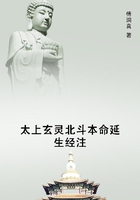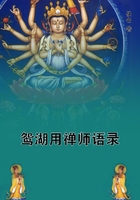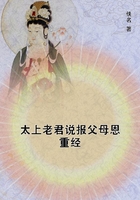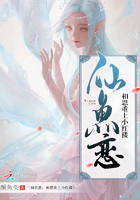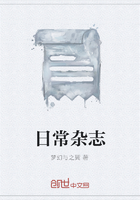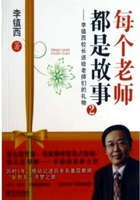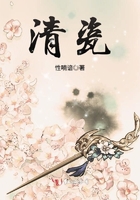Cellini had purchased and laid in several loads of pine-wood, in anticipation of the process of casting, which now began. The furnace was filled with pieces of brass and bronze, and the fire was lit. The resinous pine-wood was soon in such a furious blaze, that the shop took fire, and part of the roof was burnt; while at the same time the wind blowing and the rain filling on the furnace, kept down the heat, and prevented the metals from melting. For hours Cellini struggled to keep up the heat, continually throwing in more wood, until at length he became so exhausted and ill, that he feared he should die before the statue could be cast. He was forced to leave to his assistants the pouring in of the metal when melted, and betook himself to his bed. While those about him were condoling with him in his distress, a workman suddenly entered the room, lamenting that "Poor Benvenuto's work was irretrievably spoiled!" On hearing this, Cellini immediately sprang from his bed and rushed to the workshop, where he found the fire so much gone down that the metal had again become hard.
Sending across to a neighbour for a load of young oak which had been more than a year in drying, he soon had the fire blazing again and the metal melting and glittering. The wind was, however, still blowing with fury, and the rain falling heavily; so, to protect himself, Cellini had some tables with pieces of tapestry and old clothes brought to him, behind which he went on hurling the wood into the furnace. A mass of pewter was thrown in upon the other metal, and by stirring, sometimes with iron and sometimes with long poles, the whole soon became completely melted. At this juncture, when the trying moment was close at hand, a terrible noise as of a thunderbolt was heard, and a glittering of fire flashed before Cellini's eyes. The cover of the furnace had burst, and the metal began to flow! Finding that it did not run with the proper velocity, Cellini rushed into the kitchen, bore away every piece of copper and pewter that it contained - some two hundred porringers, dishes, and kettles of different kinds - and threw them into the furnace. Then at length the metal flowed freely, and thus the splendid statue of Perseus was cast.
The divine fury of genius in which Cellini rushed to his kitchen and stripped it of its utensils for the purposes of his furnace, will remind the reader of the like act of Pallissy in breaking up his furniture for the purpose of baking his earthenware.
Excepting, however, in their enthusiasm, no two men could be less alike in character. Cellini was an Ishmael against whom, according to his own account, every man's hand was turned. But about his extraordinary skill as a workman, and his genius as an artist, there cannot be two opinions.
Much less turbulent was the career of Nicolas Poussin, a man as pure and elevated in his ideas of art as he was in his daily life, and distinguished alike for his vigour of intellect, his rectitude of character, and his noble simplicity. He was born in a very humble station, at Andeleys, near Rouen, where his father kept a small school. The boy had the benefit of his parent's instruction, such as it was, but of that he is said to have been somewhat negligent, preferring to spend his time in covering his lesson-books and his slate with drawings. A country painter, much pleased with his sketches, besought his parents not to thwart him in his tastes. The painter agreed to give Poussin lessons, and he soon made such progress that his master had nothing more to teach him.
Becoming restless, and desirous of further improving himself, Poussin, at the age of 18, set out for Paris, painting signboards on his way for a maintenance.
At Paris a new world of art opened before him, exciting his wonder and stimulating his emulation. He worked diligently in many studios, drawing, copying, and painting pictures. After a time, he resolved, if possible, to visit Rome, and set out on his journey;but he only succeeded in getting as far as Florence, and again returned to Paris. A second attempt which he made to reach Rome was even less successful; for this time he only got as far as Lyons. He was, nevertheless, careful to take advantage of all opportunities for improvement which came in his way, and continued as sedulous as before in studying and working.
Thus twelve years passed, years of obscurity and toil, of failures and disappointments, and probably of privations. At length Poussin succeeded in reaching Rome. There he diligently studied the old masters, and especially the ancient statues, with whose perfection he was greatly impressed. For some time he lived with the sculptor Duquesnoi, as poor as himself, and assisted him in modelling figures after the antique. With him he carefully measured some of the most celebrated statues in Rome, more particularly the 'Antinous:' and it is supposed that this practice exercised considerable influence on the formation of his future style. At the same time he studied anatomy, practised drawing from the life, and made a great store of sketches of postures and attitudes of people whom he met, carefully reading at his leisure such standard books on art as he could borrow from his friends.
During all this time he remained very poor, satisfied to be continually improving himself. He was glad to sell his pictures for whatever they would bring. One, of a prophet, he sold for eight livres; and another, the 'Plague of the Philistines,' he sold for 60 crowns - a picture afterwards bought by Cardinal de Richelieu for a thousand. To add to his troubles, he was stricken by a cruel malady, during the helplessness occasioned by which the Chevalier del Posso assisted him with money. For this gentleman Poussin afterwards painted the 'Rest in the Desert,' a fine picture, which far more than repaid the advances made during his illness.
The brave man went on toiling and learning through suffering.



